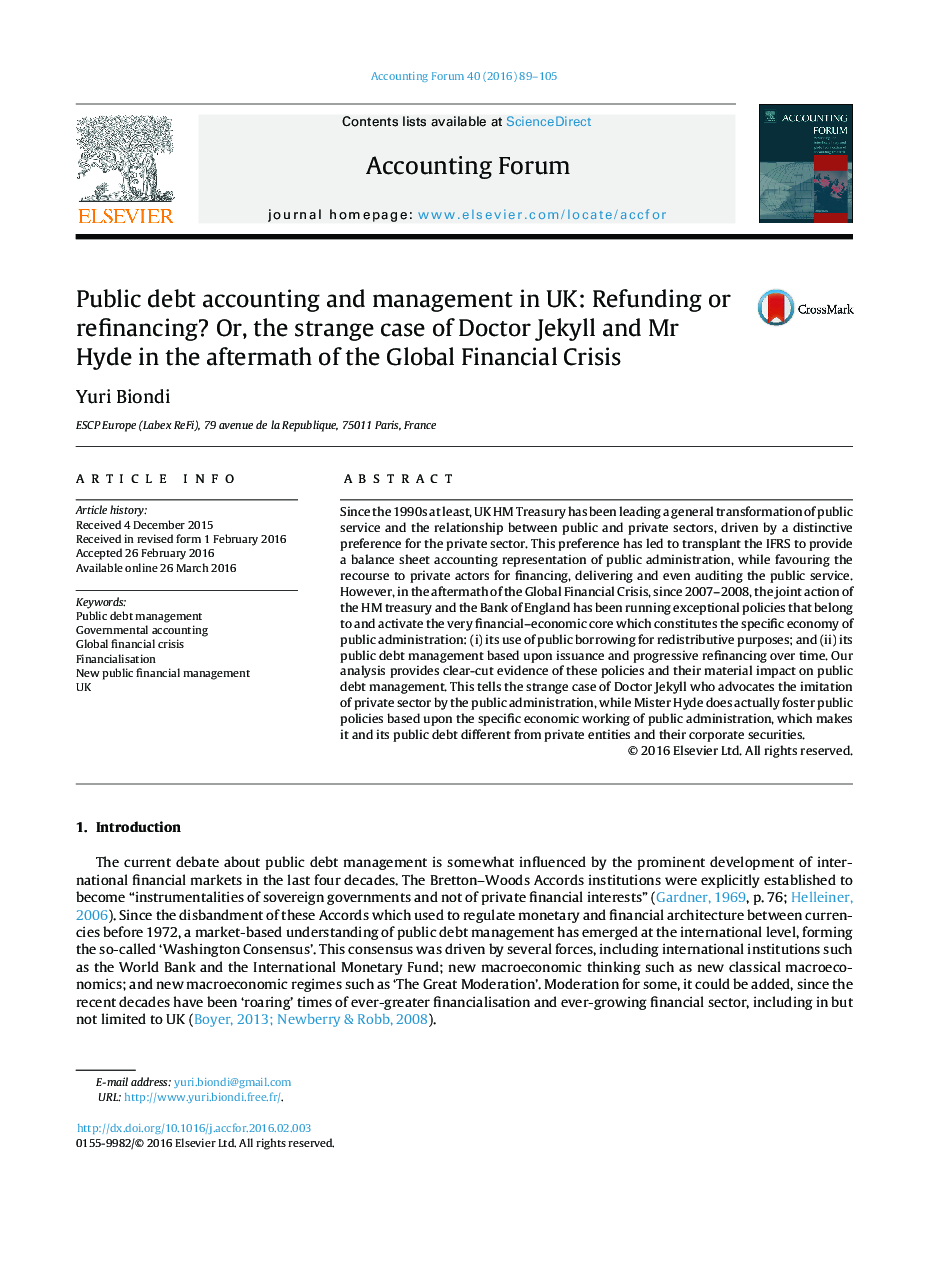| Article ID | Journal | Published Year | Pages | File Type |
|---|---|---|---|---|
| 1003663 | Accounting Forum | 2016 | 17 Pages |
Since the 1990s at least, UK HM Treasury has been leading a general transformation of public service and the relationship between public and private sectors, driven by a distinctive preference for the private sector. This preference has led to transplant the IFRS to provide a balance sheet accounting representation of public administration, while favouring the recourse to private actors for financing, delivering and even auditing the public service. However, in the aftermath of the Global Financial Crisis, since 2007–2008, the joint action of the HM treasury and the Bank of England has been running exceptional policies that belong to and activate the very financial–economic core which constitutes the specific economy of public administration: (i) its use of public borrowing for redistributive purposes; and (ii) its public debt management based upon issuance and progressive refinancing over time. Our analysis provides clear-cut evidence of these policies and their material impact on public debt management. This tells the strange case of Doctor Jekyll who advocates the imitation of private sector by the public administration, while Mister Hyde does actually foster public policies based upon the specific economic working of public administration, which makes it and its public debt different from private entities and their corporate securities.
